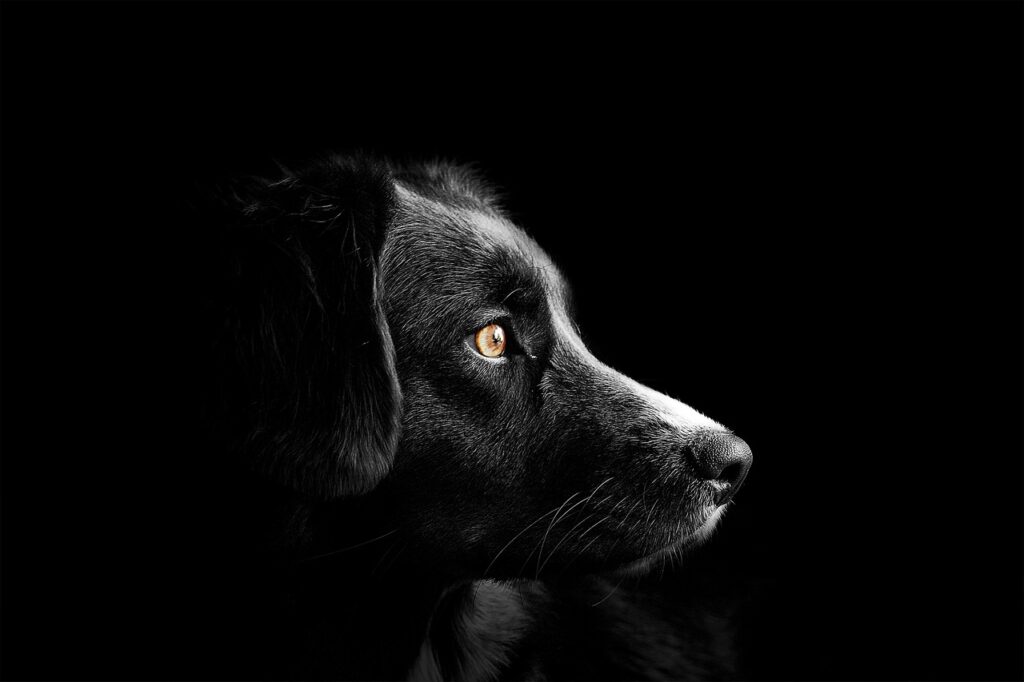Can Dogs Eat Popcorn? – Yes, With Caution
While we humans might relish the crunchy delight of popcorn during movie nights, the answer to whether our canine companions can join in the fun is a reserved ‘yes,’ but with a few cautions in mind. Plain, air-popped popcorn is generally safe for dogs to eat in small quantities as a treat. However, it’s essential to keep it free of butter, oils, salt, and other toppings that could be harmful to your dog’s health. Additionally, unpopped kernels are a choking hazard and can cause intestinal blockages, so they must be removed before sharing with your pet.
Can Puppies Eat Popcorn?
Puppies have more sensitive digestive systems, so it’s wise to be even more cautious. While popcorn isn’t toxic, its best offered in moderation, and only when it’s plain. Puppies are at a higher risk for choking on the kernels, which could also disrupt their delicate digestive processes. Hence, feeding popcorn to puppies should be approached with even greater caution than for adult dogs.
Things to consider when feeding popcorn to puppies?
When considering whether to give popcorn to puppies, always remember to check for any potential choking hazards, like unpopped or partially popped kernels. Keep portions small, as their stomachs are not equipped to handle large amounts of food, especially snacks that aren’t part of their regular diet. Monitoring your puppy’s reaction after eating popcorn is essential, as any negative response would necessitate immediate discontinuation and, possibly, a vet consultation.
Nutritional Benefits of Popcorn for Dogs – Why Popcorn is Good for Dogs?
Low-Calorie Treat Option
When plain and air-popped, popcorn can serve as a low-calorie, crunchy treat that most dogs find appealing. This makes it a somewhat healthier option compared to many calorie-packed dog treats, especially for dogs on a weight management diet.
Contains Fiber
Popcorn supplies dietary fiber, which can aid in your dog’s digestion. Fiber helps to encourage regular bowel movements and contributes overall to digestive health.
Contains Minerals
Though not a substantial source, popcorn does contain trace amounts of minerals such as magnesium and phosphorus, which are beneficial to your dog’s health in small amounts.
Provides B-vitamins
Popcorn contains some B-vitamins, specifically niacin and thiamine, which can support your dog’s overall metabolism and nerve function.
Whole Grain
Popcorn is a whole grain and can be part of a balanced diet for your dog. Whole grains offer energy-producing carbohydrates and help maintain steady blood sugar levels.
Potential Allergies: Can Dogs Be Allergic to Popcorn?
It is uncommon, but dogs can develop allergies to almost any food, including popcorn. If your dog is allergic to corn, popcorn should be avoided entirely.
Symptoms of Popcorn Allergies in Dogs
- Skin irritation : Look for scratching, redness, or bald patches as signs of allergic reactions.
- Gastrointestinal upset: Vomiting or diarrhea can occur if your dog can’t tolerate popcorn.
- Respiratory issues : Coughing or sneezing can be rare signs of an allergic response to popcorn.
What to Do If Your Dog Shows Symptoms?
- Elimination diet: Remove popcorn from your dog’s diet to see if symptoms improve.
- Veterinary consultation: If symptoms persist, seek advice from a vet to identify the allergy and receive treatment.
- Immediate care: For severe allergic reactions, such as difficulty breathing, seek immediate veterinary attention.
Recommended Amount: How Much Popcorn Can a Dog Consume?
The recommended amount of popcorn for a dog to consume is just a small handful of plain, air-popped popcorn, devoid of any additives. This occasional treat should not substitute their regular diet and must always be given sparingly to avoid unnecessary weight gain or an upset stomach.
Things to Consider When Feeding Popcorn to Dogs
Always consider the size and dietary needs of your dog when feeding them popcorn. Dogs with a history of gastrointestinal issues or obesity should have limited to no popcorn. Also, avoid giving them any popcorn that has been prepared with toppings like butter, salt, cheese, or caramel, as these can be harmful to their health.
How to Feed Popcorn to Dogs: A Quick Guide
Popcorn can be a special treat for dogs when offered correctly. The plain, air-popped variety is the safest and healthiest option for your furry friend, providing a fun crunch without unhealthy additives.
Plain Pupcorn Delight
Prepare a small bowl of plain, air-popped popcorn. Ensure there are no unpopped kernels. Serve them one at a time to your dog as a reward or during playtime.
Canine Cinema Snack
Occasionally sprinkle some air-popped popcorn atop your dog’s regular dry food to generate interest and provide a novel dining experience. Avoid doing this regularly to prevent habit formation.
Frozen Popcorn Surprise
Toss a few air-popped popcorn kernels into an ice cube tray, fill with water, and freeze. Provide these frozen treats on a hot day for a refreshing and crunchy surprise.
Conclusion
In conclusion, popcorn can be a fun, occasional treat for your dog, provided it’s air-popped and served without any toppings. However, due to the risk of digestive upset and choking hazards, popcorn should be provided in moderation and always under supervision. Always prioritize a complete and balanced diet for your pet, considering popcorn as merely a treat, not a staple of their diet. When in doubt, consult with your veterinarian for the best advice on incorporating human foods into your dog’s diet.



